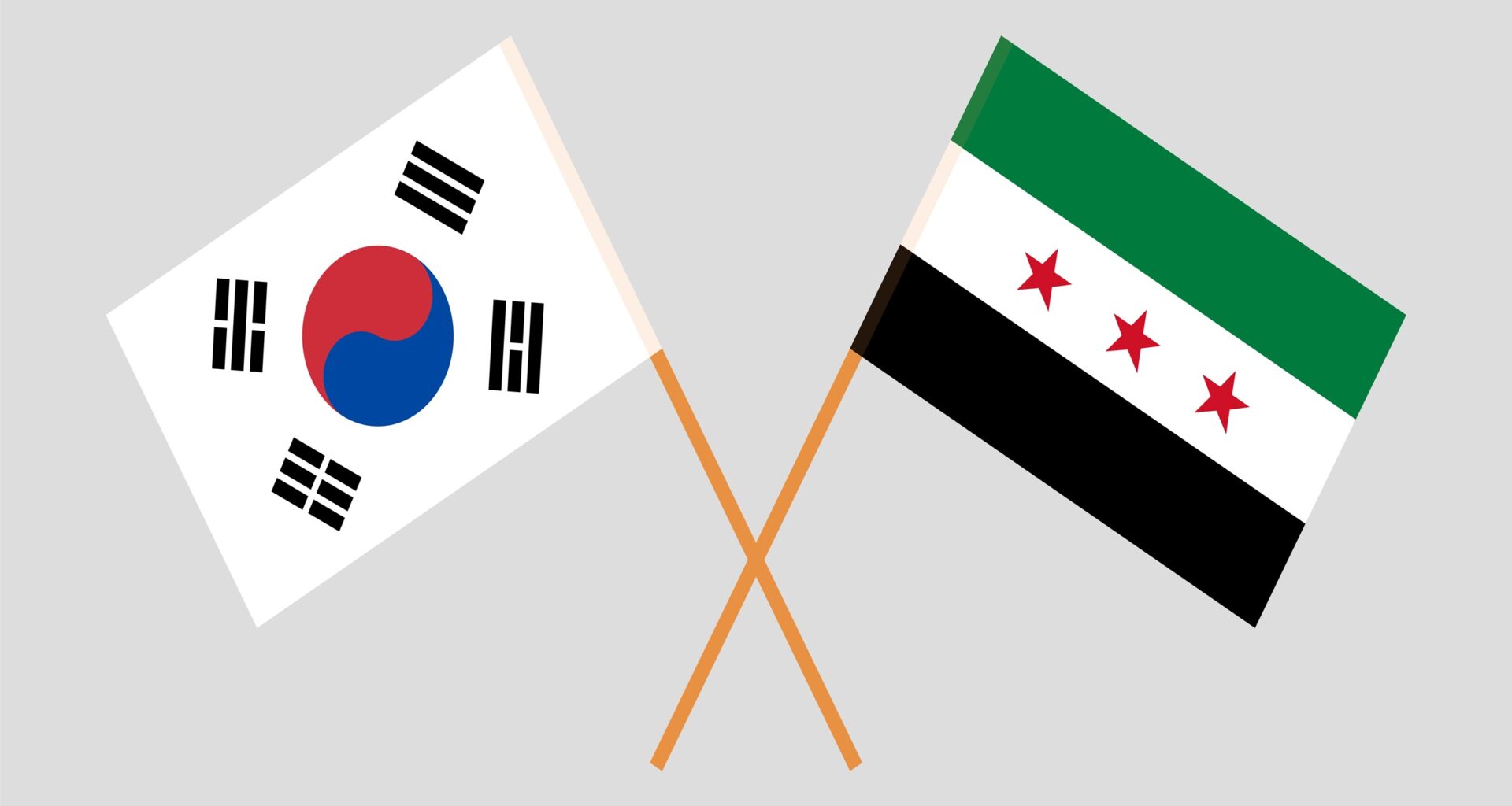This new diplomatic path between both countries could lead to expanded cooperation, something previously hindered by Syria’s historically close relationship with North Korea
[Damascus] In a landmark diplomatic development, Syrian President Ahmed al-Sharaa and Foreign Minister Asaad al-Shaibani welcomed a high-level delegation from the Republic of South Korea to Damascus, marking the beginning of a new era in bilateral relations. The visit, led by South Korean Foreign Minister Cho Tae-yul, is the first of its kind and signals a mutual desire to establish formal diplomatic ties.
According to a source at the Syrian Ministry of Foreign Affairs who spoke to The Media Line, the two countries have agreed to “sign an accord establishing diplomatic relations for the first time, with plans to exchange embassies and diplomatic missions.”
A statement from the Syrian presidency described the move as part of a broader strategy to “restore Syria’s leading role in the region and the world, a position lost due to the policies of the previous regime.”
Foreign Minister al-Shaibani hailed the agreement as a significant milestone, saying, “We have signed an important diplomatic accord with the Republic of Korea that will pave the way for stronger bilateral relations and open new avenues of cooperation in economics, technology, and education. In the new Syria, we emphasize partnerships based on mutual respect and shared interests.”
The South Korean Ministry of Foreign Affairs also confirmed the agreement, highlighting that the new diplomatic path could lead to expanded cooperation—something that had long been hindered by Syria’s historically close relationship with North Korea.
During the talks, Minister Cho expressed South Korea’s readiness to support Syria’s post-war reconstruction efforts after 13 years of devastating conflict. He noted that the process could eventually involve South Korean companies and expanded humanitarian assistance.
Under the rule of Bashar Assad, who was ousted in December, Syria maintained close ties with North Korea—a relationship that frequently placed Damascus at odds with much of the international community. Assad’s government faced significant diplomatic isolation, particularly from Western nations, after the violent crackdown on protests in 2011 and the subsequent civil war.
South Korea, for its part, currently maintains diplomatic relations with all 191 UN member states except for its northern rival, North Korea. The decision to now engage with Syria reflects Seoul’s strategic interest in regional stability and post-conflict development, particularly in a Middle East that continues to evolve geopolitically.
This diplomatic breakthrough suggests a shift in Syrian foreign policy under the new leadership, signaling a willingness to move beyond previous alliances and reposition the country within the global community. Analysts view this step as part of the Syrian government’s broader effort to craft a new image, rebuild its economy, and attract international partners.
Whether this marks a sustained change or a tactical move remains to be seen, but for now, the reestablishment of ties between Damascus and Seoul opens a rare diplomatic window—one that could reshape Syria’s international standing in the years to come.
